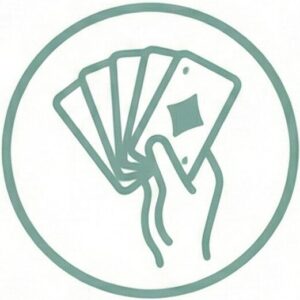How to Recall Past Lives By Tapping Into Physical Senses – Our memories shape us. Important moments stick in our minds like photos, ready to be revisited. Memories are key to life, and remembering them vividly is a talent. But have you ever wondered how you bring back those memories? Maybe you see images in your head or remember scents and smells. Chances are, you haven’t considered which sensory modalities you use to recall your life.
The way memories imprint in our minds is directly linked to our physical senses, and there are ways to increase your awareness of your experiences and your ability to recall them. In the following post, we’ll discuss:
- How tuning into our physical senses can help us remember experiences,
- How to correlate the physical senses with the 5 “Clair” senses, and
- How you can apply this approach to recalling past lives
How Our Physical Senses Help Us Remember Events
How to Recall Past Lives Using Your Senses
Give more attention to the moment, focusing on the sights and sounds, how you feel physically and emotionally, and even adding more stimuli, such as biting into a lemon or feeling the texture of your clothing.
We remember our vacations so well because we have heightened awareness of our experiences. We try new foods, look more closely at the landscape, observe the people around us, and notice differences in smells and in the quality of the light. We bask in the sun, get thrills from skiing perfect snow, or try a new activity.
If you didn’t make a memory, don’t expect it to be there to recall. We tend to pay less attention to the present in our everyday lives. Our minds are mapping out the future, analyzing relationships, or regretting past decisions. Without the focus on the present, we are not building memories. No wonder we have difficulty recalling past lives.
Imagine if you were so preoccupied during a past life that you were not filling your consciousness with memories. There would be little there to recall. I find that scary, yet I frequently witness this failure to form memories in my work with past lives, whether exploring mine or helping others explore theirs.
How Our Senses Create Memories and Enhance Past Life Recall
While we have five physical senses to experience the world around us, we also have several ‘Clair’ senses that allow us to perceive energies and access our intuition. These five ‘Clair’ senses are:
- Clairvoyance: seeing images
- Clairaudience: hearing voices or sounds
- Clairsentience: recognizing feelings
- Clairalience: smelling scents
- Claircognizance: knowing
We each have all the senses available to us, although we tend to favor one or two over the others. The three most widely accessed senses are visual, auditory, and kinesthetic.
Our personal favored sense is an important distinction when recalling memories, exploring past lives, accessing intuition, and communicating with spirits. When my client struggles to remember a past life, the block may be that they are trying to see visions when they are primarily kinesthetic sensors. Switching to their customary sensing modality does the trick.
If you have struggled to recall a past life, the same may apply—perhaps you aren’t using your primary sensing modality. Let’s explore this further. First, you need to identify which sensory modality is your strong suit. See how you relate to these descriptions and if you can identify yours.
Visual
People who are primarily visually oriented tend to recall memories by describing vivid pictures, colors, and other details. People who rely on visual modality tend toward rapid speech, look up when remembering, and can easily create a picture in their mind’s eye. When intuitive, such people are often clairvoyant. You will hear them use phrases such as:
- “I see what you mean.”
- “Let’s take a look at that.”
- “From my point of view…”
- “He’s such a colorful person.”
- “I have a vision of my future.”
Do you see things in your mind’s eye? Think about these:
- When you remember, do you glance upward?
- Do you talk rapidly?
- Can you easily visualize what others are telling you?
Auditory
People who access memories primarily through auditory means are, as a rule, more sensitive to the information they hear. Rather than storing a lot of visual detail, they are more likely to remember events associated with a piece of music or a catchphrase they heard.
Those who favor the auditory modality may learn concepts best by listening to a lecture rather than reading. Their intuitive sense is likely clairaudience, and they excel at listening to their spiritual guides. They tend to look toward their ears when recalling and will choose words that refer to an auditory experience. They might say:
- “That sounds right to me.”
- “I hear what you’re saying.”
- “I realize I should trust my gut feelings more often.”
- “There is a rhythm to my life.”
- “That rings a bell.”
Do you lean toward the auditory sense? Here are some questions to ponder:
- Do you often glance to the side when you’re trying to recall something?
- Do you hear voices?
- Can you easily recall the songs played, or do you have songs in your head?
Kinesthetic
Kinesthetically oriented people are “feelers” who rely heavily on their gut instincts and physical and emotional perceptions.
You may find them empathetic, have easy access to compassion, and use touch-oriented language. They learn best through hands-on experience, tend to speak slowly, digest the information before responding, and likely look down when recalling memories. Their intuitive “superpower” is clairsentience. They may say things like:
- “That story didn’t feel right.”
- “I’m a little touchy today.”
- “Their thoughtfulness moved me.”
- “I know it in my gut.”
- “It struck me as a problem.”
Are you kinesthetically oriented? Ask yourself the following questions:
- Do you look down when searching for memories?
- Do you rely on gut instincts?
- Do you sit with a question or a decision and answer slowly?
Improving Your Skills By Observing Others
For those who work with others, such as hypnotherapists, past-life regression specialists, coaches, or healers, it’s beneficial to pick up on the subtle cues your clients give off. These clues include their primary sensing modality. This is an essential skill to practice so let’s make this even more fun!
Alternatively, in a conversation, pay attention to the people talking. Where do their eyes move, and what words do they use to tell stories and describe memories? Are they accessing the information from visual, auditory, or kinesthetic input?
Why does this matter?
Once you identify the sensory modality someone uses, you can align with them by using language associated with that modality. Communication will flow, and they might like you better!
Conclusion
Storing memories is an essential aspect of life. It adds to how good life feels and makes you more aware. With more memories filed away, you’ll have more to retrieve from this and other lifetimes.
You can remember your past lives, though you may need some help. You remember better with focused attention and multiple sensory stimuli. Our speech and eye movements reveal our primary sensory modality.
With diligent practice, everyone can develop all sensory modalities and hone their ability to read others’ signals. Going a step further, as a hypnotherapist and past life regression expert, you’ll need to know how to use sensory modalities to facilitate memory retrieval for your clients. If you want help remembering your past lives, book a private session with me.











